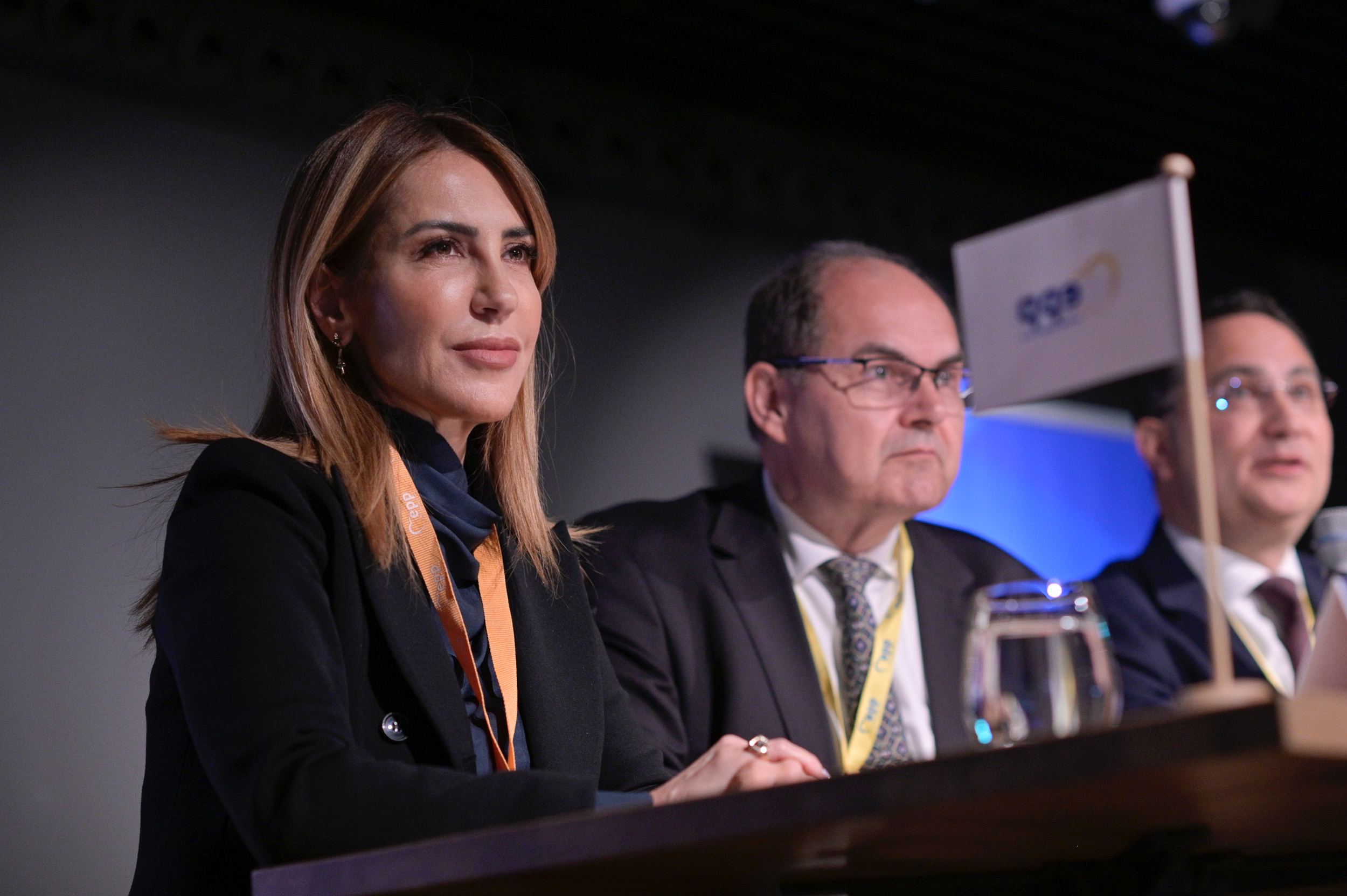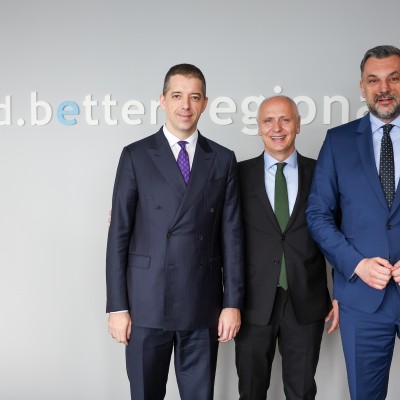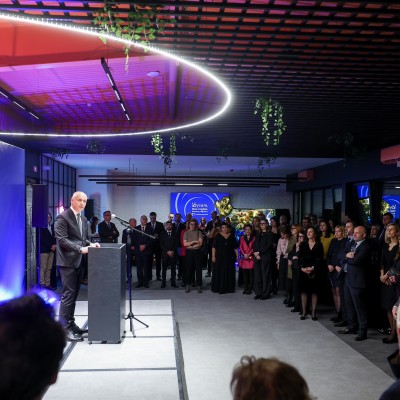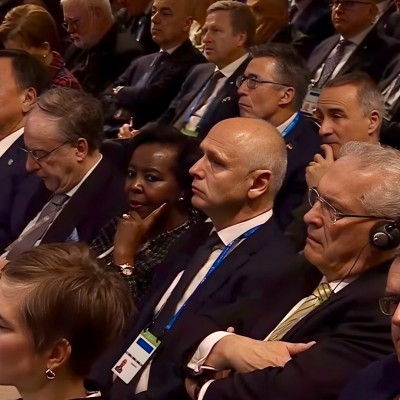RCC Secretary General takes part at EPP Congress in Rotterdam Bregu: Regional cooperation is complex and hard hitting, but it’s the way forward
31 May 2022

RCC Secretary General took part at EPP Congress in Rotterdam, on 31 May 2022 (Photo: RCC/Jerome Hubert)
EPP set to approve Position Paper on Western Balkans welcoming and praising regional achievements facilitated and led by the RCC
Rotterdam – “Our realities today are drastically different, with the war in Ukraine sending shockwaves and exacerbating two trends that were already in the making: slowed growth and inflation. For an illustration, food and beverage prices increased between 7% in Albania and 13% in Serbia. Overall inflation is projected to reach whooping 6.3% in 2022. But beside inflation and higher energy and food prices, the economic impact is also felt through disruption in supply chains, trade, investment, financial and tourism flows, and investor uncertainties,” said Secretary General of the Regional Cooperation Council (RCC), Majlinda Bregu, at the European People Party (EPP) Congress in Rotterdam today.
Secretary General Bregu spoke at the high level discussion EPP Balkan Coffee: Russia’s War & its Effects on the Western Balkan Region, with High Representative for Bosnia and Herzegovina, Christian Schmidt, Head of Western Balkans Task Force, Strategic Communication and Foresight, European External Action Service (EEAS), Jasna Jelisic, and Secretary of External Relations of European People’s Party, Patrick Voller.
WB’s reliance on Russia and Ukraine in the commodity trade is 6.5%. But the EU remains the biggest trade partner and investor in our region. Yet for the 1st time, in 8 edition of Balkan Barometer, we see a negative trend on the support for EU integration - 60% of the WB citizens considers EU membership to be a good thing, whereas last year support was 62%. Along these lines, there is an increase of the pessimism among the citizens that their economy will never join the EU. Last year it was 22% and now it is 28%.
“So the diagnostics is clear and it is not good: There are compounded negative risks and war, food, energy, inflation, which makes me think out loudly: should this scenario of crisis unfold fully with pursuing bilateral issues, escalating tones during the elections, or delaying the opening of EU accession talks, it will create such density of risks making the terrain ideal for economic and political nationalism to take root and flourish,” added Bregu.
Regional cooperation remains highly valued – according to Balkan Barometer 2022 76% of people agree that regional cooperation can contribute to better political, economic or security situation in their economy.
“Changes will take time. All of us will necessitate strong coordination and long-term resilience building reforms, and a joined-up approach to policy-making that can address complex interconnected challenges and balance trade-offs between economic, social and environmental goals. Common ones. Regional cooperation is complex and hard hitting, but it’s the way forward,” concluded RCC Secretary General.
The EPP Assembly is set to approve the Position Paper on Western Balkans welcoming the Sofia Declaration on the Green Agenda for the Western Balkans, Western Balkans Agenda on Innovation, and the Common Regional Market Action Plan, and praising regional achievements, in particular those led by the RCC, such as entering into force of the WB Regional Roaming Agreement in July 2021, which has improved mobility and integration in the region, representing a clear benefit for all citizens and showing what can be accomplished by joining efforts. The Position Paper in full is available at https://www.epp.eu/papers/uniting-europe-shared-responsibility-for-eu-integration-of-the-western-balkans.



